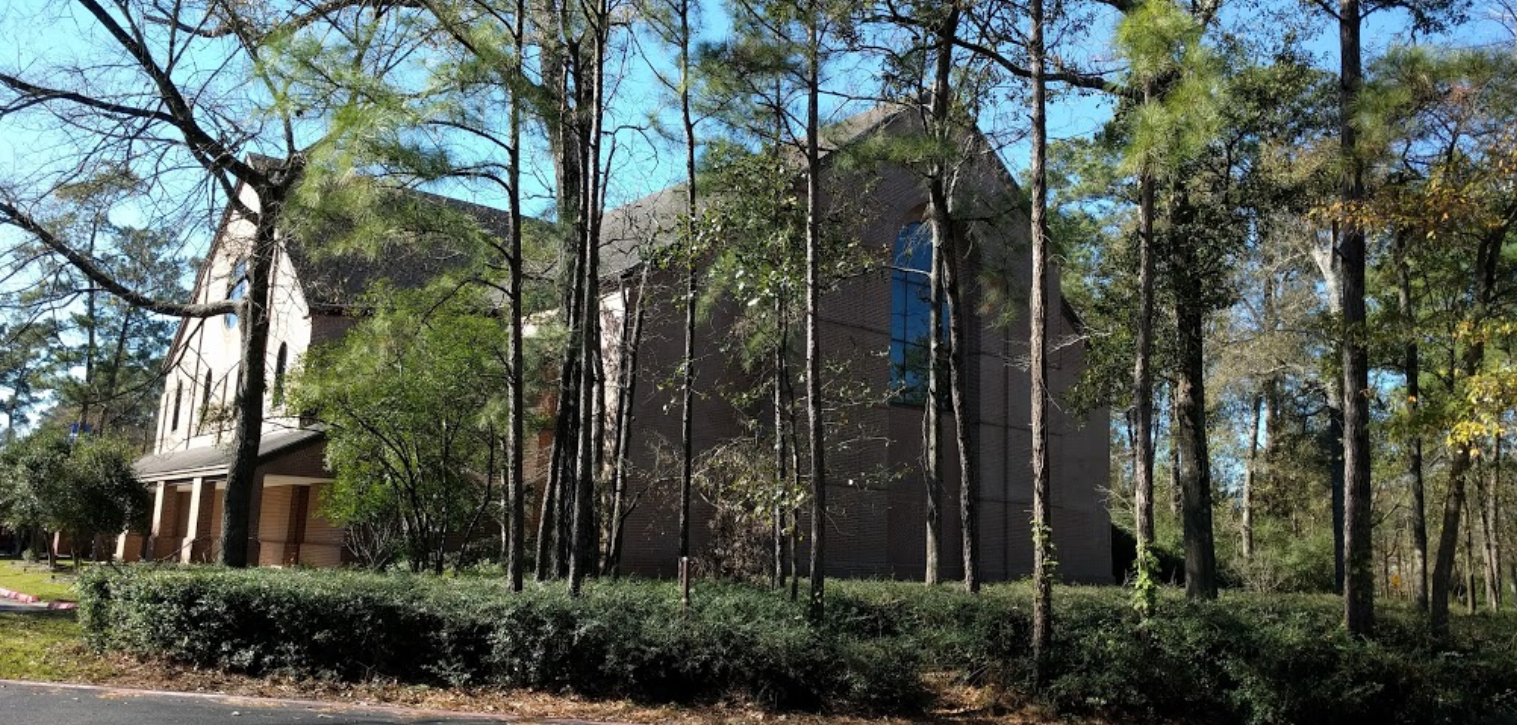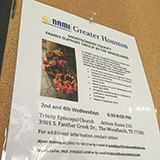
As congregations seek to serve their communities, one of the first steps is to assess what gifts and assets congregations have to offer. In addition to the many talents and interests of its members, one of the greatest assets many churches offer is the physical space they can make available to groups that would otherwise not have an affordable and reliable place to meet. Churches have been particularly important for volunteer-led groups like Alcoholics Anonymous (AA) that provide a critical resource to the community and need reliable spaces to convene.
Trinity Episcopal Church in The Woodlands has a long history of offering its space for support groups like AA. It started over a decade ago when The Rev. Doug Travis, the previous rector of Trinity from 2001-2006, had the idea to host AA and 12-Step meetings. He wanted Trinity to not only serve its parishioners, but also benefit the greater community.
“We were more and more leaning toward being a resource in the community and I would say the 12-Step Programs were probably the foundation of all of that,” said Alyssa Stebbing, Outreach Ministry Director at Trinity.
Trinity now offers multiple meeting times throughout the week for AA and has become known as a safe haven for those who are on the path to recovery.
Most recently, growing concerns of suicide and mental illness, along with the lack of support groups in Montgomery County, led to the establishment of the area’s chapter for the National Alliance of Mental Illness (NAMI).
 The NAMI Family Support Group, a peer-led group of adult family members and caregivers of individuals living with mental illness, provides a space to share insights to the challenges and successes with others facing similar circumstances.
The NAMI Family Support Group, a peer-led group of adult family members and caregivers of individuals living with mental illness, provides a space to share insights to the challenges and successes with others facing similar circumstances.
Trinity once again stepped forward to offer its space. Stebbing and a group of dedicated parishioners helped bring the area’s bi-weekly NAMI meeting to the church.
The support group now fills a small piece in the large gap of missing mental health services in The Woodlands. It also serves as a way to bring community members into the church, build support systems and allow open communication and shared experiences about mental health. In addition, the group provides key education to help break down the stigma often associated with mental illness.
Trinity also recently hosted one of EHF’s Mental Health First Aid training sessions. Church members, community organizations and agencies gathered to learn more about mental health, how to recognize the signs of a mental health crisis and how to connect those affected to resources and support.
Stebbing says the church has learned key lessons when offering facilities to community groups. She suggests congregations stay in constant communication with the group to make sure both the church and organization are on the same page regarding the use of the space. In addition, Stebbing believes it’s beneficial to have someone in the congregation who specializes in the topic or is associated with the group.
“It’s really helpful that our Rector, The Rev. Gerry Sevick, knows 12-Step Programs and former Rector The Rev. Doug Travis was very much in support of these programs,” Stebbing said. “It’s also important to have clergy who are aware of the necessity, the normalcy and how many people really deal with these situations. It’s everyone. It’s not one race or class – it is a part of life.”
Trinity, Woodlands is a great example of how a congregation can use the church’s space and facilities to become a resource for the greater community. For those seeking to get started in community outreach, offering up your congregation’s physical space may be a great way to begin building connections in your community.